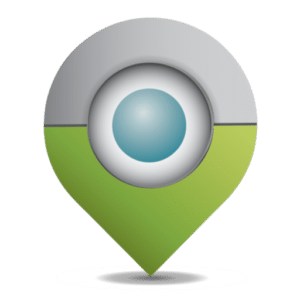If you are looking to rank web pages higher in Google search results, then knowing on-page SEO ranking factors are the way to go. These SEO ranking factors can be independent of SEO off-page tactics and will help your website show up for more searches.
On-page SEO ranking factors are directly related to the content on your website. The more relevant and fresh that information is, the better chance you have at being seen for a given search term. This means taking some time every day or week to update old posts so they can be found in Google again. It also means creating new content.
Content of Page
The first SEO ranking factor is the content of the page. The information on your pages is referred to as page content, as the name implies. Sharing a few nuggets of information isn’t enough. Your pages must provide useful information and user interaction to keep your visitors interested.
The page’s content is important for two reasons:
- It informs search engines about your page’s context, allowing them to rank you higher in relevant search ranking or search visibility.
- It keeps users on your website longer, sending a good signal to Google about the relevance of your page.
Deliver high-quality information that meets the search intent while creating your pages. By doing a Google search for your target keyword and seeing what’s currently high in google rankings, you’ll be able to figure out what your page’s search intent is.
You want to give interesting and helpful content to your audience if you want search engines to rank your pages highly. Your material should give readers enough knowledge to learn everything they need to know about the subject and related searches. SEO Agency in New York Local-interactive will give you more information below.
Title Tag
Your title tag is another one of the most important on-page SEO ranking factors. When users search, your title tag appears in the search results in the google search console.
This information is used by both search engines and people to determine the relevance of your page in search results. You should optimize your pages for this Google ranking criteria if you want them to rank higher in search results.
Here are some ideas for creating click-worthy title tags for SEO ranking factors under Title Tag:
- Put your main keyword in your title tag to help search engines detect the relevance of your website. It’s preferable to put your main keyword first so that search engines and others can see how relevant it is right away.
- Avoid exceeding the character limit: The maximum length of a title tag is 60 characters. You should avoid having a truncated title tag if you want to optimize for this on-page SEO aspect. It will help you create a clearer tag where users can see all of their expertise.
- Don’t just write “Gaming Keyboards”(for example) as a title tag. It gives your visitors no indication of what they may expect from your page. Instead, a tag like “8 Best Gaming Keyboards for 2021” informs your viewers everything they need to know.
URL
Your URL and internal linking structure are one of the most generally overlooked SEO ranking factors on a particular page. Search engines will rank you higher in search results if your URL structure gives them more quality content about your page.
An example of a bad URL structure is as follows:
- www.DOMAIN(DOT)com/fsdak/eiw-3n398-23n
When search engines encounter a URL like this, they have no idea what your page is about. However, with an optimized URL, you give search engines and your viewer’s context.
Here’s an example of a URL that has been optimized:
- www.DOMAIN(DOT)com/pc-gaming/pc-gaming-accessories/gaming-keyboards/
This URL is self-explanatory and gives page content to search engines. This URL example could be utilized as an on-page SEO ranking factor for that website, optimizing its search engine rankings.

SEO Best Practice
These are the must-have SEO best practice guidelines for the success of SEO ranking factors.
- The importance of keyword research
Performing keyword research is more than just a necessary part of SEO. The only way to bring relevant traffic to a website is to conduct keyword research. Keyword research done correctly may help determine which keywords are relevant and can deliver quality traffic to the website. It’s also important to include terms related to the main terms people are searching for, it is called latent semantic indexing.
- importance of title tags
The importance of title tags in SEO is another factor to consider. However, many individuals are unfamiliar with it, and this is one of the factors that contribute to their poor SEO results. Even little elements such as the title tag have the potential to improve SEO success. The Title tag is only included in the SEO recommended practices because of this. It’s a website’s clickable headline that appears against the SERP. When someone conducts a Google search, a large number of results are returned.
- The relevance of the meta description
The meta description is the text that appears beneath the title. It provides a concise summary of the entire content. Visitors can determine which of the results is the most relevant to their quest. Users are prevented from clicking on each result and determining which one has the important information. Another on-page SEO Best practice is optimizing the meta description.
- Include Alt tags
The alt tags play a significant part in improving the SEO community. to increase the page’s value, make it more interactive, strengthen the message you want to send, and so on All of these characteristics are beneficial to the user’s experience. Also, the user experience has an impact on SEO outcomes. if the photos’ existence is in question.
Because Google cannot see images, the easiest approach to indicate their presence is with Alt tags or substitute text. Instead of reading images, Google crawls the web pages and reads the alt tags. The rating of the website and how it will be indexed is determined by the photos prepared with alt tags. Visitors using screen readers or browsers that can’t see photos will benefit from the use of alt tags.
As a result, including alt tags is one of the most beneficial SEO recommended practices.
- In blogs, internal linking
Internal links in blogs are also one of the SEO best practices that SEO experts use. You can familiarize users’ search queries with other significant sources of information on your website by using interlinking. The act of pointing from one web page to another on the same website is known as interlinking or linking domain building.
- Outbound links
Outbound linkages are significant in the same way that interlinks are vital. Search engines should be aware that your web pages are not solely intended to increase your ranking. Instead, you are also connected to the digital world, which aims to benefit consumers. Outbound links to authoritative domains should be included in your web pages. Assisting users in their mobile searches in obtaining important information from many sources to offer value to the users.
- Focus on the URL structure
Since URLs are important SEO ranking factors, there are specific SEO best practices for them. Pay attention to the structure of the URLs as well. When creating a website SEO-friendly, the URL of the web page must also be considered. Keep the Url simple to read, short, comprehensible, and, most essential, keyword-rich and mobile-friendliness.

Frequently Asked Questions
What is on-page SEO?
On-page SEO, also known as On-Site SEO, is a technique for improving search engine rankings by optimizing web pages. The only approach to generate revenue is to ensure a higher position or to make a route for progress in the ranks of the internet company site or any website. Using both on-page and off-page optimization tactics can help you improve your SEO ranking.
On-Page SEO is a great approach that assists in the creation of a fantastic website with user-friendly features. To make Off-Page SEO operate effectively, the site must be properly maintained, which is only achievable with the use of important On-Site SEO ranking factors The warm SEO strategy with positive aspects assists in achieving a higher search engine ranking for the relevant page. Learn more through this website dennisventura.com.
What is on-page SEO and off-page SEO?
On-page and off-page SEO are both important for improving search engine rankings or SEO ranking factors, and success is determined by the volume of organic visitors to the site. The mix of high-quality On-Page and Off-Page tactics can help enhance page ranking. Perfect content, relevant keywords, internal linking, google images, meta descriptions, and different tags are all on-page SEO aspects that have a significant impact on ranking. Every site gains preferential visibility in the search engine by carefully handling each detail and creating fresh information that is not identical.
Only when a website employs appropriate On-Page SEO tactics can Off-Page SEO variables be effective. Starting with backlinks, digital marketing, and social media promotion, the page can rank higher in search engines by appearing on the first page of results. Properly maintaining the website is important because social networking encourages all high-quality web pages. For more detailed information about this topic, click this website dennisventura.com.
Why is on-page SEO important?
On-page SEO is the process of optimizing a website’s pages to increase organic traffic and improve its SERP rankings (search engine results pages). This includes optimizing the HTML, internal links, and metadata (meta title, meta description, and keyword density) on a page, as well as uploading high-quality, relevant material and photos. Because of on-page SEO, you can combine all of these characteristics of a webpage to create a better webpage.
It is important to optimize a website’s on-page SEO whether you are a large or small business. SEO is one of the most widely used digital marketing tactics, and it continues to be popular due to its consistent return on investment. On-page SEO provides the strongest return on investment (ROI) of nearly any digital marketing technique, because of its low cost and long-term benefits that can help websites thrive and bring in passive visitors for years.
How long does it take for Google to rank your page?
There is no such thing as a unique method for page layout in ranking a website in Google, and no one can predict how long it will take to reach the first pages. According to various studies, you may have to wait 3-4 months for your first Google visits if you are just beginning a website now. After 6-7 months, if you’re working in the right direction, you should start seeing some serious Google traffic.
To avoid any misunderstanding, the aforementioned figures are for getting found on Google, which can result in some organic traffic, not necessarily for one of the top five spots. It’s possible that you’ll have to wait a few more months to rank higher on Google and achieve the top rankings. Our website will assist you to rank higher and utilize the SEO ranking factors at local-interactive.com.





